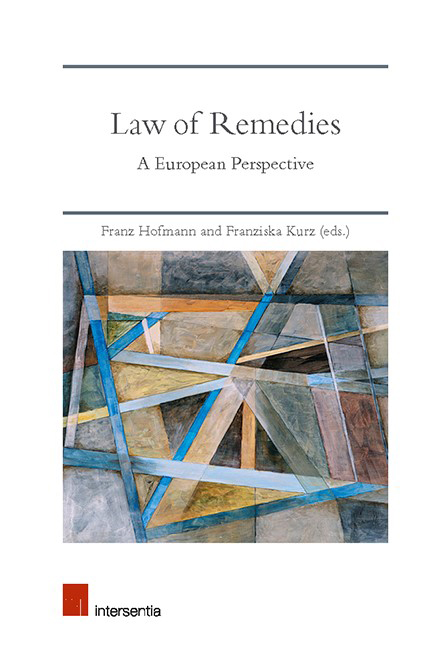Book contents
- Frontmatter
- Contents
- List of Cases
- List of Authors
- PART I THE ISSUE OF REMEDIES
- PART II MECHANISMS OF ENFORCEMENT
- PART III FUNCTIONS OF REMEDIES
- PART IV UNDERLYING PRINCIPLES
- Common Principles of Damages in EU Private Law?
- A Manifesto on Proportionality and Copyright Law: ‘Taking Remedies Seriously’
- Asking Innocent Third Parties for a Remedy: Origins and Trends
- PART V REMEDIES IN CONTRACT LAW AND INTELLECTUAL PROPERTY
- Index
- About the Editors
Asking Innocent Third Parties for a Remedy: Origins and Trends
from PART IV - UNDERLYING PRINCIPLES
Published online by Cambridge University Press: 09 November 2019
- Frontmatter
- Contents
- List of Cases
- List of Authors
- PART I THE ISSUE OF REMEDIES
- PART II MECHANISMS OF ENFORCEMENT
- PART III FUNCTIONS OF REMEDIES
- PART IV UNDERLYING PRINCIPLES
- Common Principles of Damages in EU Private Law?
- A Manifesto on Proportionality and Copyright Law: ‘Taking Remedies Seriously’
- Asking Innocent Third Parties for a Remedy: Origins and Trends
- PART V REMEDIES IN CONTRACT LAW AND INTELLECTUAL PROPERTY
- Index
- About the Editors
Summary
INTRODUCTION
This chapter, focuses on a specific type of remedy, the emergence of which has been witnessed in the European intellectual property law in the last couple of years. As the following stories will demonstrate, its historical pedigree is a mixture of European and national influences and its field of application is highly technological space. The overall story is relevant for a broader audience for several reasons. First, it shows that remedies are a very important instrument when trying to adjust the policy layers to particular industries and their social problems. Second, it gives a glimpse into the process of Europeanisation of remedies, and how such a process can embrace, but also confuse national traditions. Third, the issue of injunctions against intermediaries provides an exciting account of merge and clash of common law and civil law traditions and their conceptions of remedies. And fourth, not less importantly, it shows that remedies can be a subject that can excite young people.
Intellectual property rights are surely familiar concept to most people. Many people know, perhaps from their own experience or that of their children, that enforcement of intellectual property rights in the online environment is not the easiest thing to do. For starters, the environment is anonymous, and thus creates a low-risk space for infringements where personal accountability is hard to achieve. Moreover, the same space is encouraging all sorts of modern user creativity, which is not always in line with old-school copyright laws. For these and many other reasons, infringements are not easy to stop. For music and other industries, they represent a persistent problem which they try to tackle and resolve.
In the past, the first generation enforcement approach was to target users, the source. The attempts were made to align user behaviour with the old copyright laws. Those who were fans of tape recorders might remember this well. Already back then, there was a surge of litigation, both in Germany and the United Kingdom. The House of Lords in 1987, heard a high-profile case concerning reel-to-reel tape recorders and how they should be made illegal. The reason was that home copying of tapes significantly cut into margins of music industry since it was taking place free of charge and substituting sales of official tapes.
- Type
- Chapter
- Information
- Law of RemediesA European Perspective, pp. 233 - 248Publisher: IntersentiaPrint publication year: 2019



